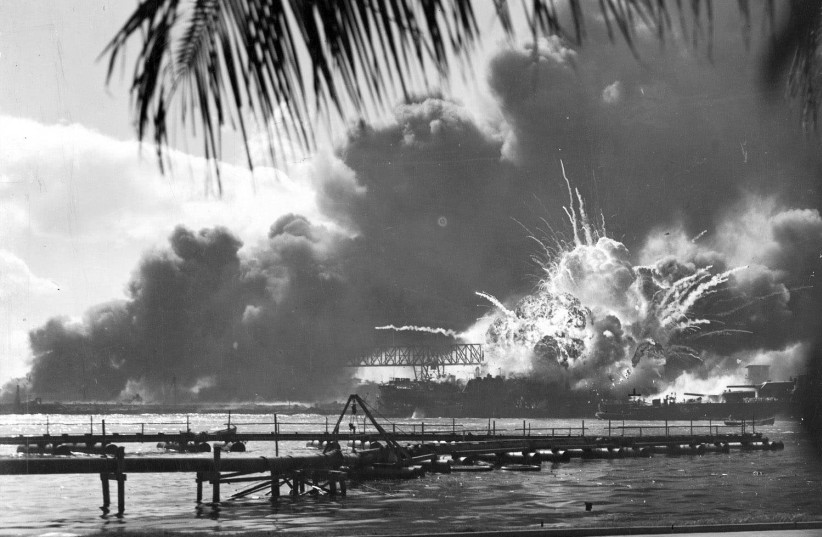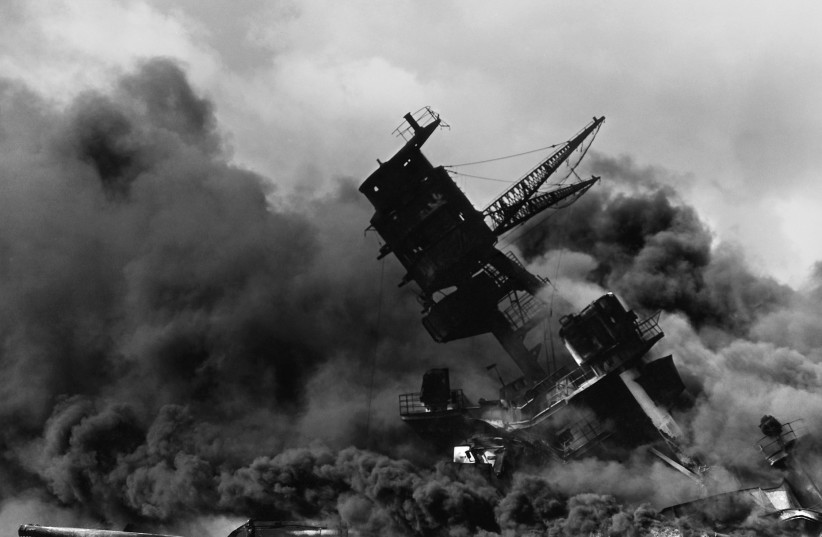On This Day: Japan attacks Pearl Harbor, thrusting US into WWII
The infamous Japanese surprise attack on the US naval base in Hawaii 80 years ago became immortalized as a "day which will live in infamy."
Ultimately, the attack itself was carried out. At 7:48 a.m. Hawaiian time, over 350 Japanese airplanes struck the naval base, severely damaging or sinking all eight battleships present, along with several other ships. The attack saw 188 US planes destroyed, over 2,400 killed and over 1,700 wounded. By comparison, Japanese forces saw considerably fewer losses.
Japan had also sent a formal declaration of war that same day, but it was not delivered until the following day.
The
next day, then US president Franklin Delano Roosevelt addressed a joint
session of Congress on the attack, describing December 7 as "a date
which will live in infamy," in what is considered one of the most famous
and important presidential speeches in US history and was shortly
followed by a US declaration of war against Japan.
Franklin D. Roosevelt's Address to Congress, December 8, 1941
The attack also saw the US thrust into the war on the side of the
Allies, fighting against Japan and fellow Axis powers Germany and
Italy.
Ultimately,
this would see the Allies emerge victorious, beating back the Axis and,
in Japan's case, see the dropping of two nuclear bombs on Japanese
cities - the only times to this day that nuclear weapons have been
deployed in warfare.
The ramifications and legacy of the attack are widespread and can be
seen in numerous aspects. In terms of tactics, the Japanese attack
failed to damage US aircraft carriers and submarines. And it was with
these very vessels that the US was able to push the Japanese Navy back
throughout the Pacific. Further, Japan failed to target several naval
repair yards and other facilities, which the US was able to make use of.
But one of the most notable immediate ramifications of the attack
was the American public quickly rallying together against Japan, though
it also led to widespread anti-Japanese sentiments in the US and the
placing of over 100,000 Japanese-Americans in internment camps.
It
had also taken many Americans by surprise as while many were aware of a
danger posed by Japan in the military, most others were overly focused
on the threats in Europe, according to historians.
But
also influential was Roosevelt's speech the following day. The phrasing
of a "Day of Infamy" has gone on to be used in other political
speeches, many comparing it to the speeches given by president George W.
Bush following the 9/11 terrorist attacks.
The phrasing was also directly referred to in 2021 by Senate Majority Leader Chuck Schumer, when referring to the Capitol insurrection
on January 6 that saw supporters of then-president Donald Trump storm
the US Capitol to try to stop Congress from certifying the election in
favor of Joe Biden.
According to the Associated Press, Schumer referred
to the day as a day that will "live forever in infamy."
On
Tuesday, the US will mark the 80th anniversary of the attack, with
survivors having begun arriving in Hawaii late last week, according to
local news outlets.
Reuters contributed to this report.
This page was posted by Sputnik One of the Sputniks Orbit blog
Please Recommend this page and follow us




No comments:
Post a Comment